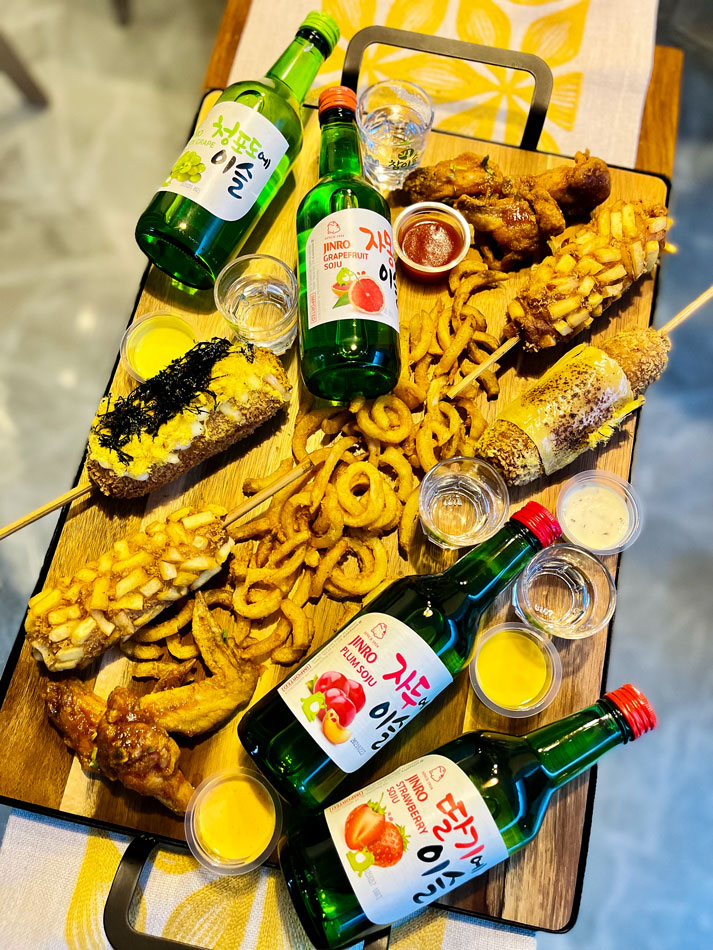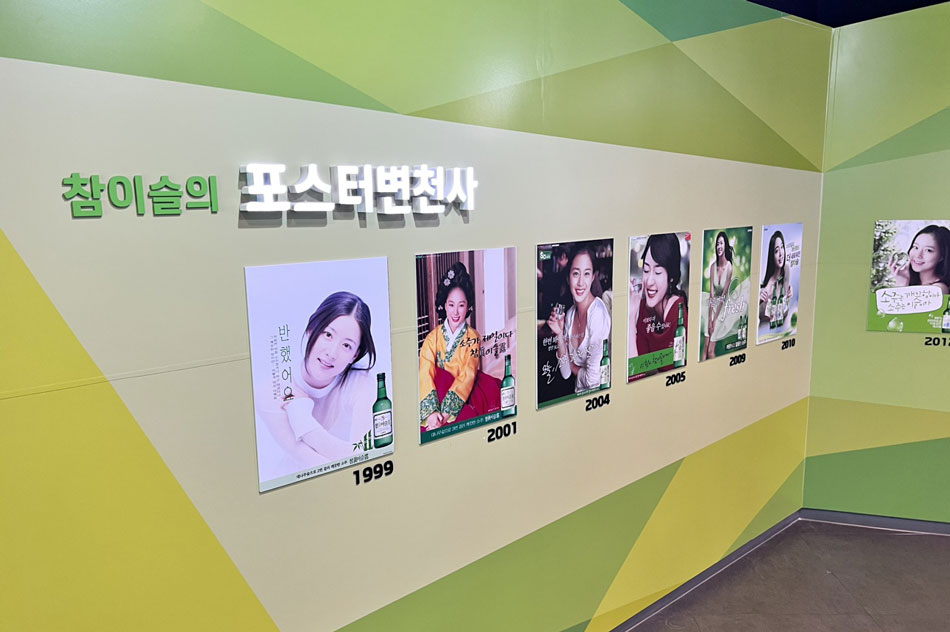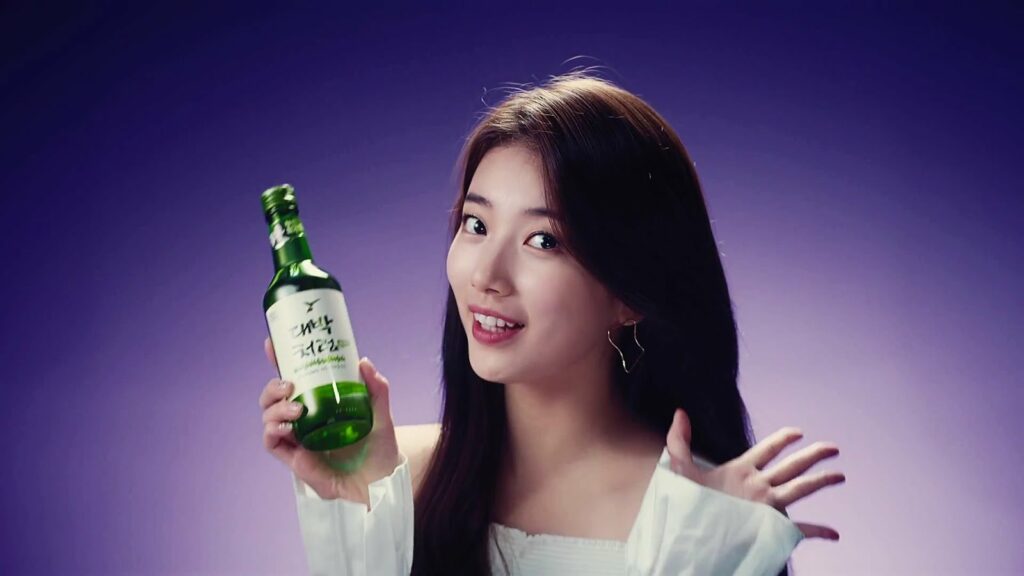As K-pop and K-drama began to captivate audiences across the world, soju inadvertently rode the ‘Korean wave’ to international fame
Fans of South Korean popular culture may have had their first encounter with soju through shows with drinking scenes or celebrities endorsing the beverage. And as entertainment media from the Asian nation began to captivate audiences across the world, soju inadvertently rode the “Korean wave” to international fame.
“As Korean culture and the entertainment industry gained worldwide recognition through the Hallyu wave, soju, closely related to the lifestyle of Koreans, naturally drew the curiosity of many consumers as it appeared in content,” said Hwang Jung-ho, managing director for overseas business at HiteJinro, a leading soju producer.
The revenge drama “Itaewon Class,” slice-of-life “My Liberation Notes” and romantic comedy “Business Proposal” are among the popular Korean shows that feature soju prominently, depicting the spirit as a staple of Korean drinking culture.
“When characters in content are seen enjoying soju, it often prompts viewers to seek out soju… This, I believe, has contributed to the popularity of soju,” Hwang told select Filipino journalists who recently went to HiteJinro’s distillery in Icheon City as part of a company-sponsored trip.

Soju, often considered Korea’s national drink, is a clear distilled liquor with neutral flavors, similar to vodka but “sweeter and smoother.”
Jinro, in particular, produces soju with natural ingredients such as rice, barley, tapioca, crystalline fructose, stevia and katemfe. These are filtered four times through a patented bamboo charcoal process, removing impurities that cause hangovers and smell.
“Unlike other distilled spirits, soju’s low alcohol content and clean taste make it suitable for casual consumption, attracting a broader audience,” Hwang said.
Soju has grown from South Korea’s signature drink to becoming one of the world’s best-selling spirits. In fact, earlier this year, the Jinro brand topped the Millionaires’ Club list for having sold more than 100 million nine-liter cases in 2022, according to Drinks International
The Millionaires’ Club, published annually by global drinks journal Drinks International, features international spirit brands that sell over one million nine-liter cases.
Celebrity endorsers
HiteJinro has also enlisted Korean celebrities, many of whom have a large overseas following, to promote its beverage. They mostly comprise of female stars such as Kim Tae-hee (“Stairway to Heaven” and “Love Story in Harvard”), Gong Hyo-jin (“The Producers” and “When the Camellia Blooms”), and IU (“My Mister” and “Hotel del Luna”).

Hwang explained that soju originally had an image of “a man’s drink” when it was first introduced in 1924 because of its high 25-percent alcohol content. But over the years, the alcohol content decreased to 19.8 percent and the bottle design “transformed into green,” emphasizing an “eco-friendly and nature-oriented image.”
“As a result, there was a growing tendency to select female models who could convey the image of nature-friendliness as part of our adjusted marketing strategy,” he said.
More than being a refreshing beverage, soju “offers a cultural experience of Korea” for foreign consumers, Hwang said.
“In fact, when overseas consumers enjoy soju, they perceive it as more than just a beverage, it becomes a delightful cultural experience of Korea,” he said.
“We are pleased that soju can provide overseas consumers with a special time of cultural exchange with Korea, and this experience has become a core value of our brand,” he added.
Source: ABS News


